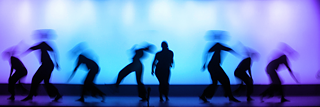Which topics and discourses are we dealing with worldwide? The online magazine Zeitgeister invites experts, artists and authors to a joint exchange. It offers local and global perspectives - on postcolonialism, sustainability, post-digital cultures, feminism and current affairs.

